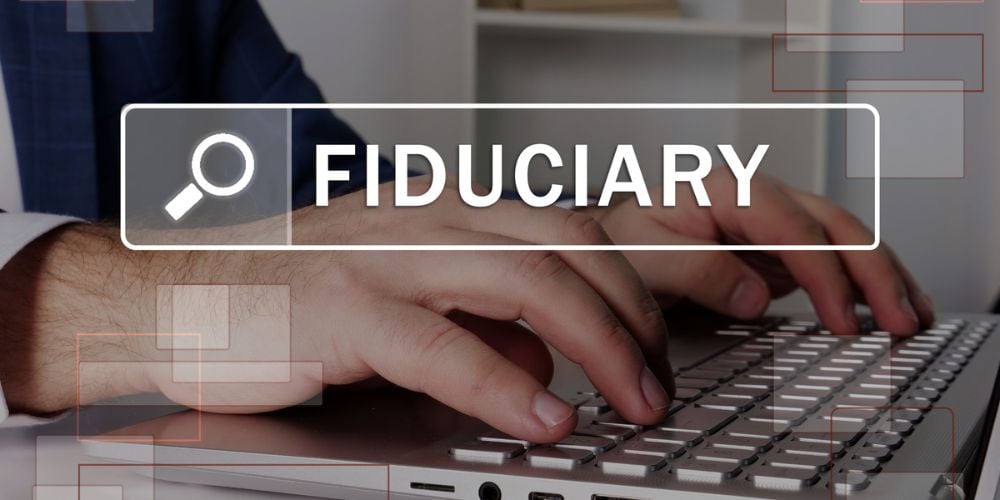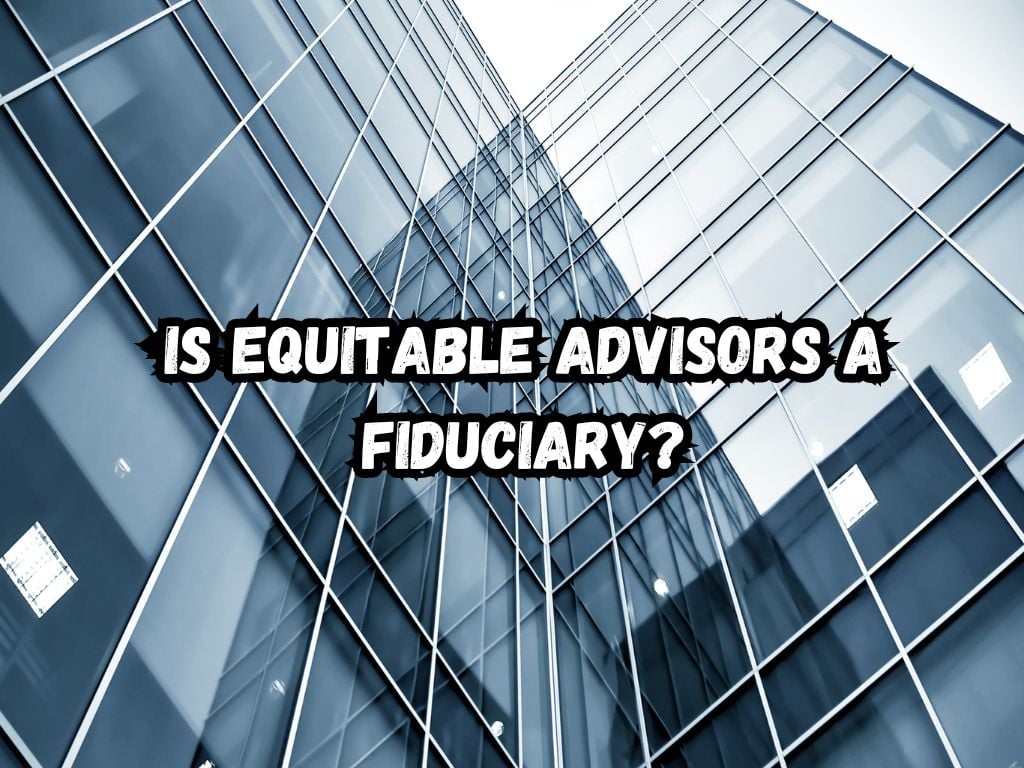In the world of finance, it is crucial to know whether your financial advisor is acting in your best interest as a fiduciary. Equitable Advisors, a prominent financial advisory firm, often comes under scrutiny regarding its fiduciary responsibilities.
In this comprehensive guide, we will explore the concept of a fiduciary, delve into Equitable Advisors’ services, and address the crucial question: Is Equitable Advisors a fiduciary?
What is Equitable Advisors?
Equitable Advisors, formerly AXA Advisors, is a well-established financial advisory firm that offers a range of services to its clients.
With a team of experienced financial professionals, the company aims to provide expert guidance on investment strategies, retirement planning, insurance, and wealth management.
Undeadvisors, the Fiduciary Standard
To grasp the significance of Equitable Advisors’ fiduciary status, we must first understand the fiduciary standard in the financial industry.
A fiduciary is an individual or entity entrusted with the responsibility to act in the best interest of their clients. This means putting the client’s needs before their own and providing advice that is objective, unbiased, and transparent.
The fiduciary standard is considered to be the highest standard of care and loyalty. Fiduciaries are legally bound to act in the best interests of their clients and are expected to prioritize the client’s goals and objectives over any competing interests.
This standard ensures that the client’s best interests are always at the forefront of the advisory relationship.

Is Equitable Advisors a Fiduciary?
Determining whether Equitable Advisors is a fiduciary requires a closer examination of their practices and disclosures.
While Equitable Advisors is a registered investment advisor with the Securities and Exchange Commission (SEC), it is important to note that not all registered investment advisors are required to adhere to the fiduciary standard.
Equitable Advisors may have specific advisory relationships where they act as fiduciaries, but it is essential to clarify the scope and nature of these relationships.
While explicit information regarding Equitable Advisors’ fiduciary status might not be readily available, it is worth noting that being a fiduciary can provide numerous benefits to clients.
Fiduciaries are legally bound to act with utmost care, loyalty, and diligence in managing their clients’ investments. They are held to a higher standard of accountability, and any breach of fiduciary duty can result in legal consequences.
Consequences for Not Being a Fiduciary
If a financial advisor, including Equitable Advisors, is found not to have acted as a fiduciary when required, it could have severe repercussions for clients.
Not being a fiduciary means that a financial advisor may prioritize their own interests or promote products with higher commissions, rather than acting solely in the best interests of their clients. This can result in potential conflicts of interest and potentially harmful financial advice.
When a financial advisor fails to meet their fiduciary responsibilities, it can lead to financial losses for clients. In some cases, clients may have legal recourse to seek damages from the advisor.
Furthermore, the reputation of the financial advisor and the firm can be adversely affected, leading to a loss of trust among clients and potential regulatory actions.
What to Look for in a Financial Advisor
Qualifications and Experience
When evaluating a financial advisor’s qualifications and experience, consider the following:
Relevant Certifications: Look for advisors who hold certifications such as Certified Financial Planner (CFP), Chartered Financial Analyst (CFA), or Chartered Financial Consultant (ChFC). These certifications demonstrate a commitment to professionalism and a high level of knowledge in the field.
Education and Training: Examine the advisor’s educational background, including degrees and specialized training. Consider whether their educational qualifications align with your specific financial needs.
Industry Experience: Assess the advisor’s length of time in the industry and their experience working with clients who have similar financial goals. An experienced advisor may have encountered various market conditions and can offer valuable insights and strategies.
Continuing Education: Inquire about the advisor’s commitment to ongoing education and professional development. A dedicated advisor will actively seek to expand their knowledge and stay up to date with industry trends and changes.

Fee Structure
Understanding the financial advisor’s fee structure is important. Consider the following:
Fee types: Different advisors may have varying fee structures, including asset-based fees, hourly fees, or flat fees. Determine which fee structure best aligns with your financial situation and preferences.
Commissions: Some advisors earn commissions from selling financial products, which can introduce potential bias in their recommendations. If you prefer a fee-only advisor, ensure they do not receive any commissions and are solely compensated by their clients.
Fee Transparency: Clear communication regarding fees is essential. Ensure you understand the total cost of the advisor’s services and any additional fees associated with specific transactions or services.
Value for Money: Assess the advisor’s value proposition by considering the overall quality of service and the value you receive in relation to the fees charged. A low-cost advisor may not always provide the level of expertise and personalized attention you require.
Disciplinary History
Checking the disciplinary history of a financial advisor can provide insights into their ethical conduct and trustworthiness. Consider the following steps:
Regulatory Bodies: Consult organizations like the Financial Industry Regulatory Authority (FINRA) or the Securities and Exchange Commission (SEC) to access public records on disciplinary actions, complaints, or sanctions against the advisor.
Verify Credentials: Ensure the advisor’s credentials are accurate and up to date. Cross-reference their certifications with the relevant professional organizations to confirm their legitimacy.
Background Checks: Conduct online research or hire a reputable background-checking service to investigate any instances of misconduct or unethical behavior.
Past Client Complaints: Look for any negative reviews or complaints from current or previous clients. Although individual complaints should be assessed in context, patterns of consistent concerns may be red flags.
Client Reviews and References
Obtaining feedback from current and past clients is a valuable way to assess an advisor’s reputation and the quality of their services. Consider the following:
Client Testimonials: Read testimonials or online reviews from clients who have worked with the advisor. Look for common themes or specific praise that aligns with your financial goals.
Referrals: Ask the advisor for references or contact information of clients who have given permission to be contacted. Speaking directly to these clients can provide more in-depth insights into the advisor’s performance, communication style, and ability to meet client expectations.
Communication and Responsiveness: Inquire about the advisor’s accessibility and responsiveness to client inquiries and concerns. Open lines of communication are essential for maintaining a productive advisory relationship.
Client Retention Rate: Assess the advisor’s ability to retain long-term clients, as this can indicate a high level of client satisfaction and a positive client-advisor relationship.
Conclusion
Determining whether Equitable Advisors is a fiduciary requires a comprehensive analysis of their practices and disclosures. While the company is a registered investment advisor, it is important to understand the specific advisory relationships in which fiduciary duties are applied.
As a client, it is crucial to consider the benefits of working with a fiduciary and the potential consequences of not doing so.
Choosing a financial advisor is a significant decision that can have a profound impact on your financial future.
By understanding the concept of a fiduciary and considering the factors discussed in this guide, you can navigate the complex world of finance with confidence and find an advisor who will prioritize your best interests every step of the way.
Remember, transparency and trust are key when it comes to building a successful advisory relationship.


 Tags:
Tags:










